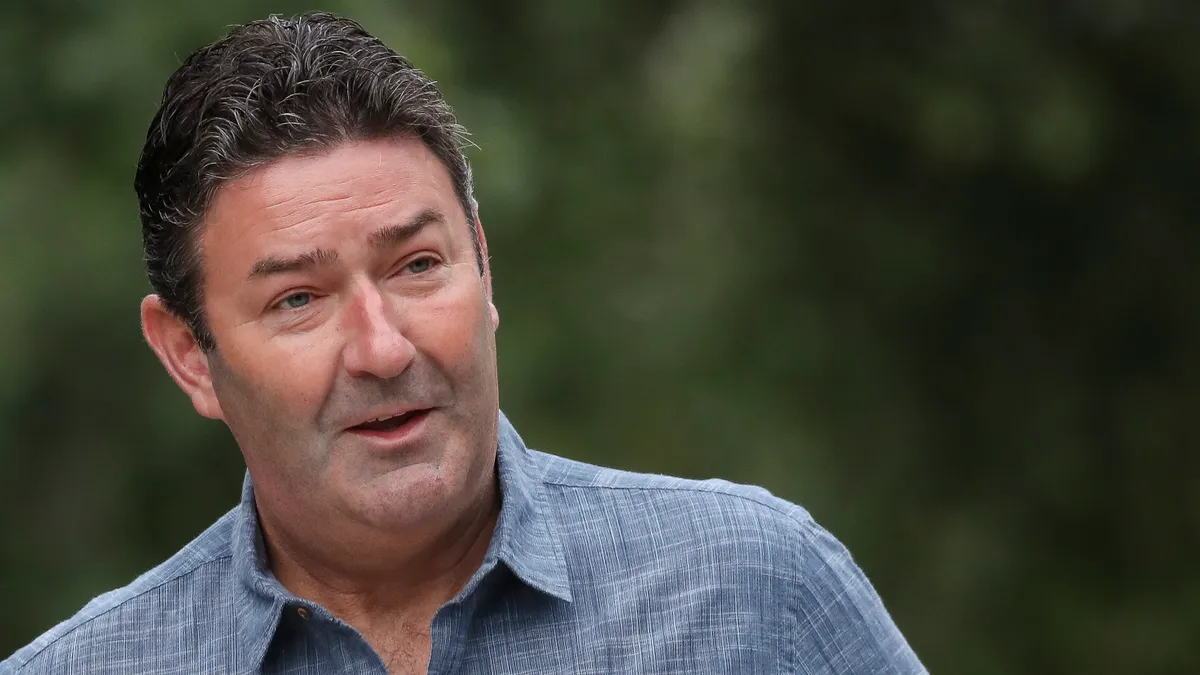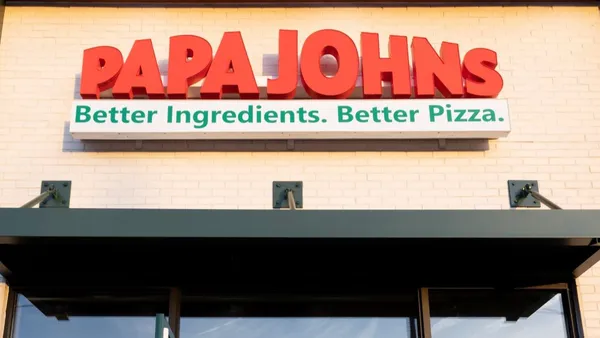Dive Brief:
- McDonald's has settled the lawsuit it brought against former CEO Steve Easterbrook, clawing back $105 million in equity awards and cash Easterbrook was granted in his severence package. The company filed the suit in August 2020, claiming Easterbrook lied during the company's probe into his sexual relationship with an employee.
- "During my tenure as CEO, I failed at times to uphold McDonald's values and fulfill certain of my responsibilities as a leader of the company. I apologize to my former co-workers, the Board, and the company’s franchisees and suppliers for doing so," Easterbrook said in a statement.
- The settlement brings McDonald's year-long clawback struggle, during which time the company attracted criticism for its handling of Easterbrook's firing, to a close. In August, stockholders sued McDonald's over this issue, just a week after a similar investment suit and four months after Teamsters filed a similar suit.
Dive Insight:
This settlement brings more than financial victory to McDonald's.
Critics within and outside the company pointed to the long and highly-publicized saga of Easterbrook's ouster as an emblem of pervasive culture problems at the corporate and store level. The company may be able to begin rehabilitating its public image now that it has successfully clawed back the money from Easterbrook, which he would not have been granted if he had been honest during the investigation since he would have been fired with cause, McDonald's said.
"Today's resolution avoids a protracted court process and moves us beyond a chapter that belongs in our past," McDonald's Board Chairman Rick Hernandez wrote to the chain's employees, franchisees and suppliers in an internal memo viewed by Restaurant Dive. "But even as we move forward, there are lessons that cannot be forgotten, including the importance of continuing to foster a culture where the expectation is that people will speak up in response to wrongdoing."
The company has made a number of investments to improve its sexual harassment policies and to better its work culture overall, tying executive compensation to goals for diversity and representation in corporate leadership.
But accusations of sexual harassment have still arisen. In March, for example, a CBS Sunday Morning TV segment explored a number of sexual harassment allegations at McDonald's restaurants, prompting CEO Chris Kempczinski to send a letter to its global franchisees, suppliers and employees assuring that the company would release new global brand standards.
In April, McDonald's announced it would require sexual harassment training at its 39,000 global restaurants, including franchisee locations, beginning January 2022. This training will impact 2 million employees, and corporate evaluations will determine whether workers feel physically and emotionally safe on the job.
In the meantime, employees have continued to accuse the company of fostering unfettered sexual harassment at its stores. In October, McDonald's employees in 12 cities went on strike to protest how the company was handling ongoing sexual harassment lawsuits.
It's possible that the settlement — coupled with the company's impending training — will give more teeth to McDonald's claims that it has cleaned up many of the issues synonymous with Easterbrook and his leadership team. But if sexual harassment complaints continue to pile up, McDonald's could risk further employee frustration at a time when retention is already a struggle for the QSR industry.














